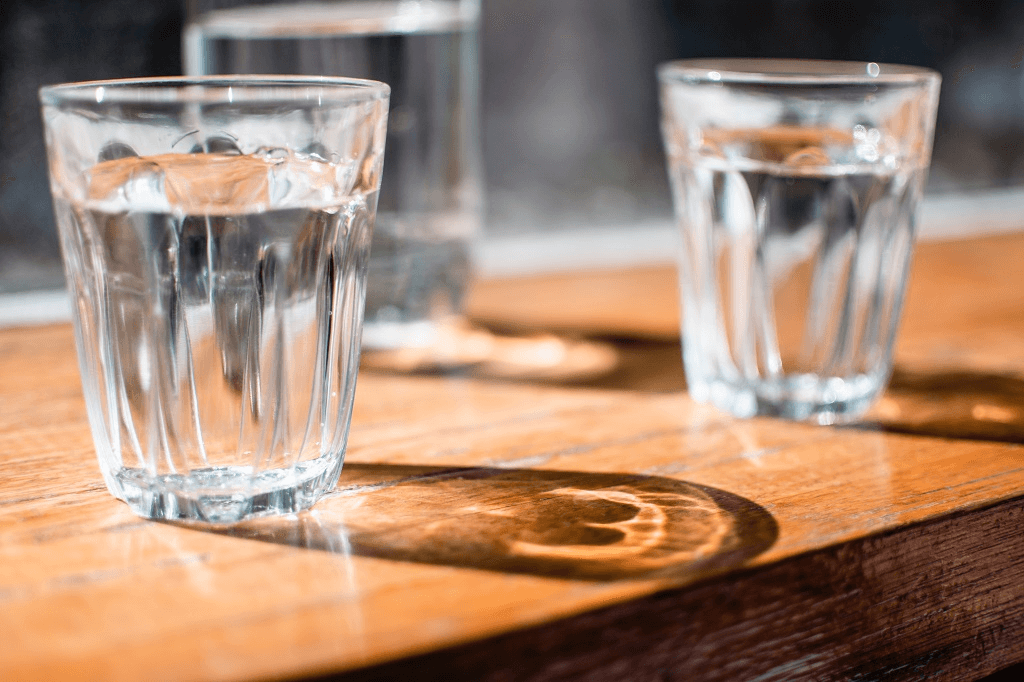The words “soft water” and “hard water” may seem familiar to you. You may be wondering what causes water to be soft or hard, and also which one of these waters is safer or healthier to drink. Even though the water appears transparent, it includes chemicals and minerals. Water’s “hardness” is determined by certain minerals’ concentration. You would be able to make the distinction between the two kinds of water, and their benefits and drawbacks.
What Is Soft Water and Hard Water?
Water Hardness
When water includes a high concentration of the cations which are, positively charged ions, like Mg2+, Fe3+, and Ca2+, it is said to be hard. Whenever water drips thru a mineral, these ions get usually delivered into the supply of water. Limestone is the best instance of a calcium-containing mineral. The criterion for determining if the water sample is hard or not is set at 150 ppm. The sample of water is termed soft whereas if the solution includes less than the 150 ppm ions of hard water. The sample of water is termed hard whereas if the solution includes 150 ppm or more ions of hard water.
Whenever water percolates via layers of gypsum, chalk, or limestone, which are mostly composed of sulfates, bicarbonates, magnesium carbonates, and calcium, hard water is created.
Water Examples: Rainwater is typically gentle when it falls. Nevertheless, when water moves through the earth and then into the waterways, it uses up minerals such as lime, chalk, and, most notably, magnesium and calcium, resulting in hard water. Because hard water includes important minerals, it’s often recommended for drinking, not just for the health advantages, but also because of the taste. Soft water can be obtained from filtered bottled water or rainwater.
These substances are termed soft since they include extremely low levels of ions which lead towards hard water whenever tested experimentally.
How Can You Tell Them Apart?
You can’t generally determine if water is soft or hard by a glance. The water feels, and how it affects your washing machine or dishwasher can be somewhat of an indication.
Hard Water Signs Include:
- After washing your hands, the sensation of a residue on them is an indication of hard water. This is due to soap scum forming as a result of the soap interacting with calcium. If indeed it is hard water, you might have to wash your hands for a longer period.
- Spots: These might form on glassware and cutlery after they have been washed. These are often calcium carbonate deposits.
- Mineral stains: they appear on garments after being washed. Due to the obvious abrasiveness of the water that is hard, clothing might wear out sooner.
- There is reduced water pressure inside your house. Mineral deposits could build inside the pipes, limiting water flow & diminishing the internal diameter of said pipes.
Soft Water Signs Include:
- a good lather while washing clothing, utensils, and perhaps even your body and hands; cleaner clothes without any mineral staining and much reduced Wear and tear damages.
- your house has good water pressure.
- A little sodium aftertaste when drinking water, albeit the change in flavor is sometimes unnoticeable.

Soft Water Hard and Water: Benefits and Drawbacks
Both kinds of water have distinct hazards and advantages because the quality of water might differ between soft and hard water. It mainly boils depending on personal choice and the purpose of the water. There seems to be a great deal of information regarding soft and hard water available, but a great deal of this information is simply misunderstandings or myths.
Hard Water
We cannot say that hard water is contaminated just because it has more amount of minerals in it. Contamination, as opposed to mineral content, refers to bacteria and germs. Minerals are important minerals for the body, but too many can be harmful. Hard water drinking may even help you achieve your required daily dose of calcium and magnesium since it includes high amounts of these vital minerals. Although there is considerable suspicion that hard water drinking could have cardiovascular perks, there is no conclusive evidence to support that idea.
Calcium deposits could occur if you heat hard water. If this accumulates, it can seriously impair the durability and performance of appliances in your house. This involves pipes as well as a coffee maker within your home. To complicate things further, your heating expenses will increase & your appliance performance will decrease. If the water that you use has larger scales of water hardness, you may notice consequences on your basic hygiene. After bathing, hard water could leave a film on your hair, hands, and skin. As a consequence, your skin and hair may become more brittle and drier.
Soft Water
If you consume food high in magnesium and calcium, drinking water containing lower quantities of such minerals is unlikely to present a problem. But if your diet is insufficient, using magnesium, calcium, or multivitamin supplements would be sufficient to satisfy your everyday requirements. But for some people, there is a great concern when it comes to water, especially those who have hypertension. Because after drinking water that contains a high amount of sodium their blood pressure could raise dangerously. Just like people with hypertension are recommended not to put salt in their meals, they would also be told not to soften the water that they drink. Soft water seems to be much more prone to collect lead from old pipes of water that have not been fixed to prevent lead from leaching.
Soft water, contrary to hard water, is devoid of abrasive minerals that really can harm your property and health. To put it another way, it is kinder to both your home and your body. Soft water, which lacks magnesium and calcium, can help avoid scale accumulation in your home and your pipes and appliances. Hard water could deactivate the chemicals in soap, but contrary to that soft water can boost soap’s efficiency. Soft water may battle the stickiness and dryness induced by winter conditions, hard water, or low humidity in terms of health. What does all this imply for your physical well-being? After each wash, your skin and hair will be softer and smoother.
